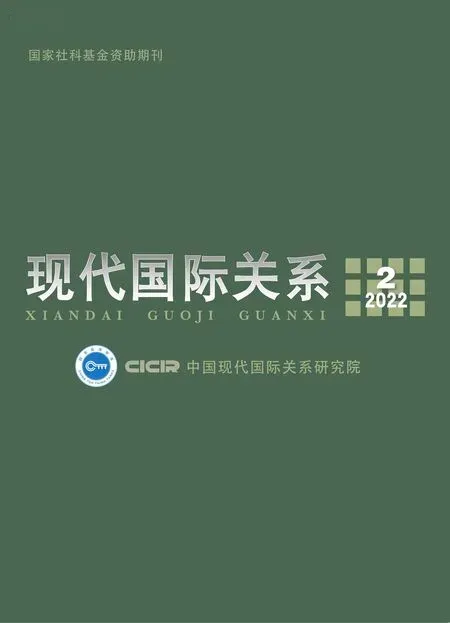Abstracts
2022-11-04
European Union’s Frenchification Tendency and Its Impact
In recent years, the European Union has shown an obvious tendency of Frenchification in the direction of integration, the concept of economic development and the strategic culture. First, redistribution has been reflected in the monetary policy of the Euro Zone and in the fiscal policy of the EU,which shows the requirement of solidarity by France; second, France’s deep-rooted“economic patriotism”is being transformed, to a greater extent, into industrial policy and protectionism in the EU; third, the French concepts of“European sovereignty”and“strategic autonomy”are becoming the EU’s geopolitical demand.The tendency of Frenchification of the EU is not only the result of efforts of Macron’s government,but also more closely related to the global situation and changes within the EU,particularly the changes of the American society and political landscape as well as the Brexit.The Frenchification of the EU could lead to a more federalized EU, or lead to separation and retrogression due to increased internal tensions. The EU’s Frenchified development will have a profound geopolitical influence.
EU,France,European integration,geopolitics
A New Round of US-EU Coordinated Development on Technology and Trade
The Biden administration has been committed to restoring trans-Atlantic relations. It has made progress in the new transatlantic cooperation process, established a more comprehensive and systematic cooperation and coordination mechanism in the field of trade and technology, and set up a core body—US-EU Trade and Technology Council. The new round of US-EU coordinated development on technology and trade has new features, such as high specifications, more EU voice, focus on strategic emerging and disruptive technology issues, and obvious orientation towards China. The current scope of bilateral cooperation is obviously targeted at China, which will pose a serious challenge to Chinese scientific and technological development in technological innovation, supply chain,standard rule making,trade and investment and other fields.
trans-Atlantic relations,US-EU coordination,US-EU Trade and Technology Committee
Carbon Neutrality and the New Landscape of International Energy Politics
The international energy low-carbon transition is accelerated by the carbon neutral target. The world consumption of traditional energy is entering a bottleneck, the development of new and renewable energy is accelerating, and the trend of energy electrification, energy networking and energy digitalization is increasing.At the same time, under the impact of the COVID-19, some radical and political emission reduction measures in the lowcarbon transition process have also exacerbated an international energy short-term supply-demand imbalance which has resulted in soaring energy prices and electricity shortages in many countries.The ongoing global energy shortage underlines the complexity of the international energy transition,and foreshadows that the low-carbon transition process will face many energy security problems.The global energy geopolitical landscape is brewing many new changes.
carbon neutral, international energy politics, new type of energy security, geopolitics, critical minerals,electricity security
Transformation of African Regional Development
Against the backdrop of COVID-19 pandemic,African regional international system is stepping into a new period of transformation due to the pandemic. At the national level, the developments of economic reconstruction,political localization,and complex security development,are pushing African countries into a period of adjustment full of uncertainties.At the regional level, governance bodies represented by the African Union (AU) are entering a new period of reform due to severe deficits in terms of governance capacity and external supports. The driving forces provided by middle powers are facing challenges in terms of sustainability. At the global level, the strategic competition between great powers provoked by the US and Europe is spreading to Africa.
COVID-19 pandemic,Africa,international system,developmental transformation
The US Strategic Community’s Taiwan Policy Debates and Their Implications
The US strategic community is undertaking a new round of US Taiwan policy debates over whether to adhere to the longstanding policy of strategic ambiguity or not. The“school of defending Taiwan,”which advocates adjusting the policy of strategic ambiguity and US military intervention in any Taiwan Strait conflict, has sprung up rapidly. But it is being attacked by the“school of Taiwan abandonment”and the“school of maintaining the status quo.”Although the three schools share the same logical starting point aiming to maximize US interests in the Strait and safeguard American hegemony, their different work experience, ideology and values, especially the changing situation of China-US relations and US China policy, shaped their different policy cognition on US policy toward Taiwan.
Taiwan policy debate,“school of defending Taiwan”,China-US relations,the Taiwan question
